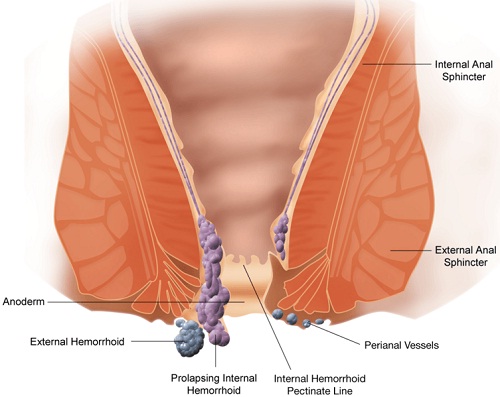
Finding Relief: Fissure Treatment in Ghaziabad
Living with an anal fissure can be excruciating and distressing, affecting one's quality of life. Fortunately, modern medical advancements have made it possible to effectively treat this painful condition. If you're in Ghaziabad and seeking relief from the discomfort caused by an anal fissure, you're in the right place. In this blog, we will explore the causes, symptoms, and treatment options available for fissure treatment in Ghaziabad.
Understanding Anal Fissures:
An anal fissure is a small tear or crack in the lining of the anus, resulting in intense pain during bowel movements. This condition can be triggered by various factors, including chronic constipation, straining during bowel movements, diarrhea, or even inflammatory bowel diseases. The symptoms may include sharp pain, bleeding during or after bowel movements, itching, and discomfort.
Seeking Professional Help:
If you suspect you have an anal fissure, it's crucial to seek medical attention promptly. Visiting a specialist in Ghaziabad who has experience in treating such conditions will ensure a proper diagnosis and appropriate treatment plan. Remember, self-diagnosis and self-medication may worsen the situation, so consulting a professional is essential.
Diagnosis of Anal Fissures:
A qualified proctologist will conduct a thorough examination, including a review of your medical history and symptoms. The doctor may also perform a physical examination of the anal area to confirm the presence of an anal fissure. Sometimes, additional tests, such as an anoscopy or sigmoidoscopy, might be recommended to rule out other conditions.
Conservative Treatments:
In the early stages of an anal fissure, conservative treatments may be sufficient to promote healing and alleviate symptoms. These treatments include:
-
Dietary Changes: Increasing fiber intake and staying hydrated can help soften stools, making bowel movements less painful and reducing the risk of further fissures.
-
Topical Medications: Over-the-counter creams or ointments containing local anesthetics or analgesics can provide temporary relief from pain and itching.
-
Sitz Baths: Soaking the affected area in warm water several times a day can promote healing and reduce discomfort.
Advanced Treatment Options:
If the fissure persists or becomes chronic, more advanced treatment options may be considered. Some of these include:
-
Lateral Internal Sphincterotomy (LIS): This surgical procedure involves a small incision in the internal anal sphincter muscle to relieve pressure and promote healing of the fissure.
-
Botulinum Toxin Injection: Injecting botulinum toxin into the anal sphincter can help relax the muscle and aid in healing.
-
Laser Treatment: Laser therapy is a minimally invasive option that can promote healing and reduce pain.
-
Fissurectomy: In some cases, a fissurectomy may be performed to remove the fissure and promote healing.
Post-Treatment Care:
Following any treatment, it is essential to follow your doctor's instructions for post-treatment care. This may include taking prescribed medications, maintaining proper hygiene, and adopting a fiber-rich diet to prevent recurrence.
Preventing Anal Fissures:
Prevention is always better than cure. To reduce the risk of developing anal fissures, consider the following tips:
-
Maintain a healthy diet with adequate fiber intake.
-
Stay hydrated to keep stools soft and easy to pass.
-
Avoid excessive straining during bowel movements.
-
Practice good anal hygiene.
Conclusion:
An anal fissure can be a distressing condition, but with the right approach to treatment, you can find relief and restore your well-being. In Ghaziabad, various experienced proctologists offer effective treatments for anal fissures. Remember to seek professional help if you experience any symptoms related to anal fissures and follow the advice of your healthcare provider to ensure a smooth recovery. Don't let the discomfort hold you back from seeking help – a pain-free life is within your reach!
